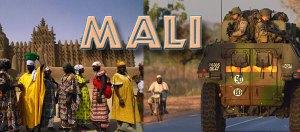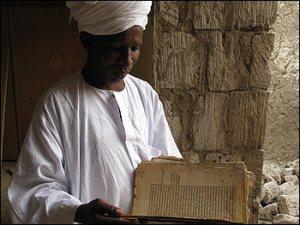 Why Mali and why now? Contrary to the western media picture of al Qaeda militants in the north threatening the stability of the region, 90 percent of Mali is Muslim with the overwhelming majority of Sunni faith.
Why Mali and why now? Contrary to the western media picture of al Qaeda militants in the north threatening the stability of the region, 90 percent of Mali is Muslim with the overwhelming majority of Sunni faith.
Indeed Mali has been Muslim from the 9th Century with the first Islamic king, Baramandanah, ruling from 1050. The most impressive symbol of the faith is the imposing Great Mosque of Djenne, dating back to 1204.
Radical political Islam did not appear in Africa for another 1,000 years when a certain Osama bin Laden walked about freely allowed to cultivate a network of terror in Sudan from 1992 before his attentions towards the Saudi peninsula led him to flee to Taliban-ruled Afghanistan.
The period of over 1,000 years between the arrival of Islam and Mali’s independence from France in 1960 is a story of glorious empires and incredible wealth cut short by the Portuguese who enslaved Malians – also called Mandingas – from the 1480′s while the stealing enormous riches. This marked the land’s descent into bloody suppresion, brutal colonial rule and, from 1960, post-independence poverty and instability.
Before the europeans arrived Mali was the richest kingdom on earth. A BBC documentary in 1999 noted that while western europe suffered the plague and pestilence of the Black Death, 14th Century Mali was the second-largest empire with the greatest gold reserves.
The Mali and Songhai empires are at the epicentre of the West African golden age. Mali was one of the most powerful trading nations and their elites relaxed in ostentatious wealth. Even their slaves were kitted out in Persian silk.

Malians recorded that Islamic ruler Mansa Musa I sent 2,000 ships across the Atlantic in 1311, 181 years before Christopher Columbus ‘discovered’ the Americas. There is much evidence of west African presence from this period and author Ivan van Sertima states that Columbus himself noted purchasing metal goods of west African manufacture in the Americas.
The Mali region has an incredible history. Aside from surviving monuments like the great mosques and university, records still exist in the form of tens of thousands of ancient books and manuscripts, many of which are decaying and being sold cheaply to tourists by Malians trying to survive.
Islamic ‘insurgencies’ are relatively new to Mali and were not noted until 1997. In many ways they are the product of four decades of successive coup d’état‘s and the IMF-imposed trade liberalisation and the squeezing of state spending through structural adjustment plans in the 1990s.
Abject poverty and desperation gave birth to a radicalism that drew inspiration not from the peaceful Islam that had existed in the land for over 1,000 years but a modern strand of Islam that views the world from a political and historical perspective.
I reject the violence, murder and self-sacrifice of al Qaeda militants yet believe that Mali must be viewed historically and politically. The current intervention of French troops, aided by logistical support from Britain and Italy, has claimed 11 lives this week including three children. And this is just the start of a terrible slaughter that looks set to unfold as Françoise Holland prepares to escalate the war by raising the number of French troops to 2,500 and supplementing the aerial bombardment of Islamic militia in a ground conflict.
Last September I wrote that American drone attacks risked creating a new generation of terrorists in Africa. Today the european intervention in Mali is certain to heighten that possibility, creating would-be ‘martyrs’ out of the bereaved. The manufactured ‘war on terrorism’ is shifting its’ theater to Africa, hence the growing presence of the Pentagon’s African agency AFRICOM. And the mistakes of Iraq and Afghanistan, where western military action radicalises the young and countries get sucked into a bloody downward spiral of death and economies are decimated, could well be repeated in this continent.
Given europe’s role in reducing the world’s richest empire to squalor – through enslavement, stealing, colonialism, neo-colonial world trade and French influence in post-independence conflicts – it is abundantly clear that Africa itself needs to be the authors of Mali’s solutions.
France, Britain and europe do not have the moral legitimacy to intervene in Mali, whose problems were largely caused by those nations. Europe’s forces must leave Mali now and be replaced by the African Union who understand the history from the perspective of Malians and can design a better future with their best interests at heart.
By Lester Holloway @brolezholloway
